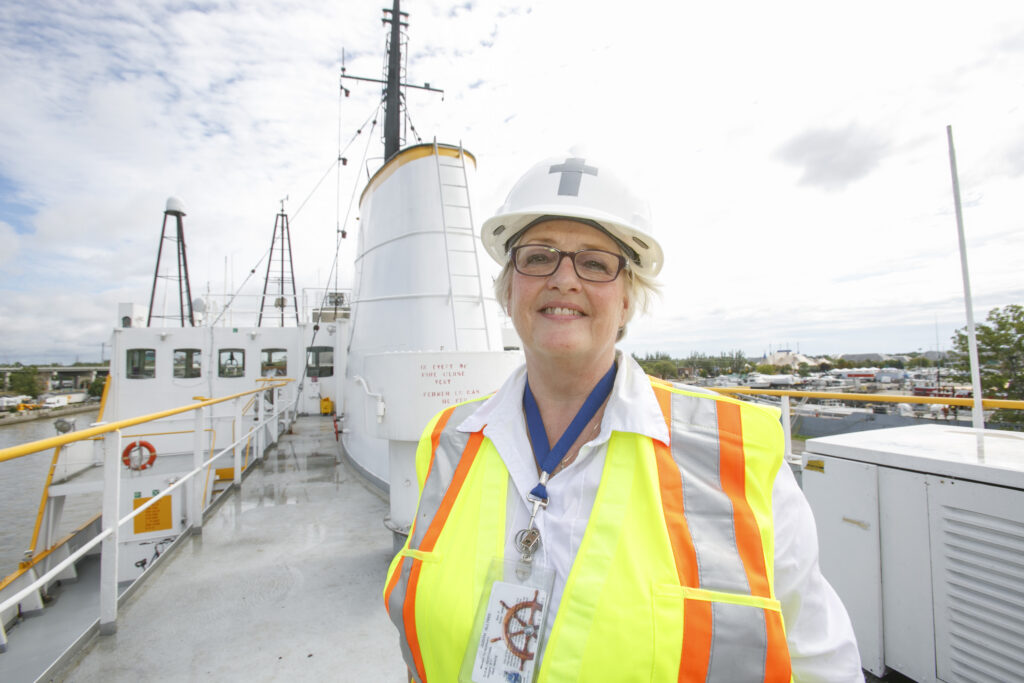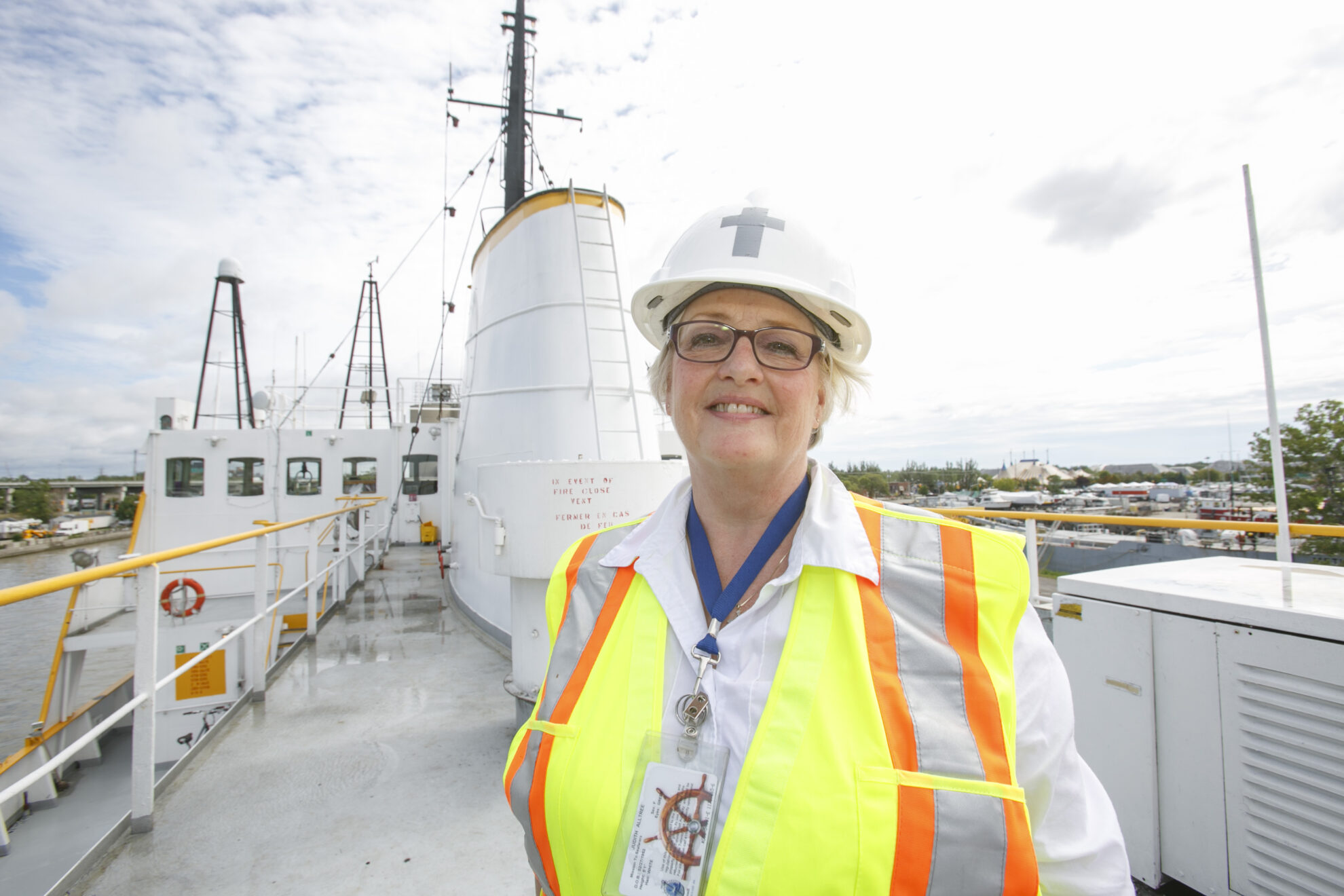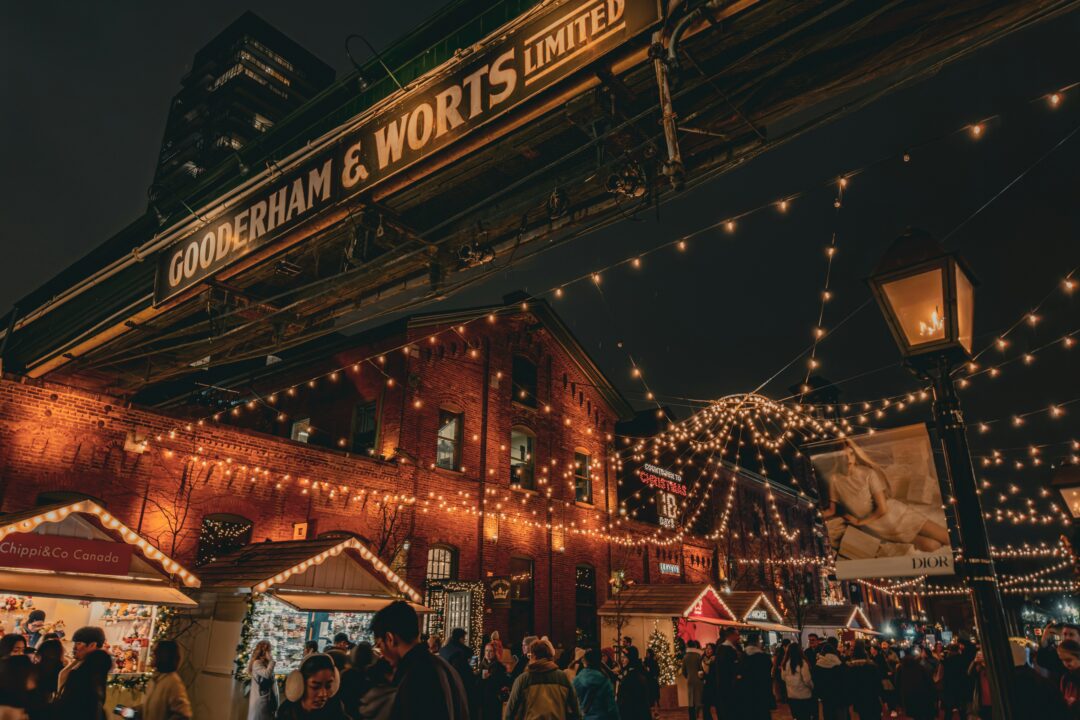Winnie Czulinski –
When Judith Alltree moved into the St. Lawrence neighbourhood in 1996, she had a clear view of the waterfront and huge vessels there. She had no idea that Sugar Dock, and the Port of Toronto off Unwin Avenue, would years later become vitally important to her professionally – with the Mission to Seafarers: Canada.
“In seminary they train you for parish ministry,” says Rev. Alltree, ordained as an Anglican priest in 2003. “But this is more like missionary work.”
Alltree’s grandfather was a master mariner in the merchant service in Vancouver, and she was intrigued when offered the Mission to Seafarers chaplaincy and interim executive director position in Toronto, in 2013. As a chaplain (representative of a religious tradition attached to a secular institution), Alltree has been aboard many freight, cargo and cruise ships that dock in Toronto.
The role of a chaplain and mission to seafarers may include counselling, mainland transport and errands, communication, determining that the crew are fed well and cared for, justice and welfare services, and dealing with issues like grief and post-traumatic stress.
Along with volunteers, chaplains may help obtain and arrange anything from Wi-Fi and fresh market vegetables, to Covid-19 vaccinations. Alltree may help interpret for sailors who don’t speak English; she also will locate clerics of other faiths.
Sometimes little things have huge effects. One Easter, Alltree brought bags of high-quality chocolate aboard a ship with Ukrainian and Filipino crew. They were stunned, they thought she was selling it.
“I had to explain to them that ‘this is our gift to you. Welcome to Toronto, welcome to Canada. We care about you, appreciate you, that you make this enormous sacrifice to sail around the world for us, to bring us what we need.”

Around the world, two million seafarers work up to 11 months a year as crew on ships that transport 90 percent of world exports. In 2023, according to Ports Toronto, 189 ships visited Toronto delivering a range of bulk and general cargo products totalling 2,311,616 metric tonnes, while 18,000 passengers came here on 45 cruise ships.
Alltree’s role has expanded to regional director of Mission to Seafarers Canada, a registered charity since 2021, and part of the worldwide Mission to Seafarers founded in 1856. “My role is to connect with all the different missions in Canada (Vancouver, Thunder Bay, Sarnia, Windsor, Port Colborne, Hamilton, Toronto, Oshawa, Saint John and Halifax) to support their work, and help with port and ship issues. Abandonment, unpaid wages, inappropriate or insufficient food and lack of communication with families are some of the largest issues.”
An Associated Press story in May stated that more than 2,000 seafarers across some 150 ships were stranded or unpaid in 2023 – the worst year on record – though mostly overseas.
For seafarers’ rights and work-related issues, Alltree and her colleagues cite the International Labour Organization’s Maritime Labour Convention and connect with sources such as Transport Canada, Canadian border security and immigration departments, the International Transport Workers’ Federation union, and port and state authorities. She also promotes the more than 200 Seafarer Centres in 50 countries around the world.
Before taking up her ministry, Alltree worked in performing-arts management in one of Canada’s first such agencies to represent artists from around the world.
“We often were dealing with limited exchange of English, different customs and culture, and trying to be the bridge between artist and theatre. It was a phenomenal training ground,” she said.
Working with the (multi-denominational) Mission to Seafarers, there are always challenges. A ship’s captain may be the only crew member who speaks English. During the Covid pandemic, Mission volunteers dropped off.
Toronto Port’s own Seafarer Centre was demolished in a flood, so Alltree and her colleagues had to bring “comfort and joy” to seafarers arriving in Toronto without a place for them to visit.
“We do it the way it was done from the beginning of this ministry: we visit the ships. It is not about the building; it’s about the seafarers themselves.”




